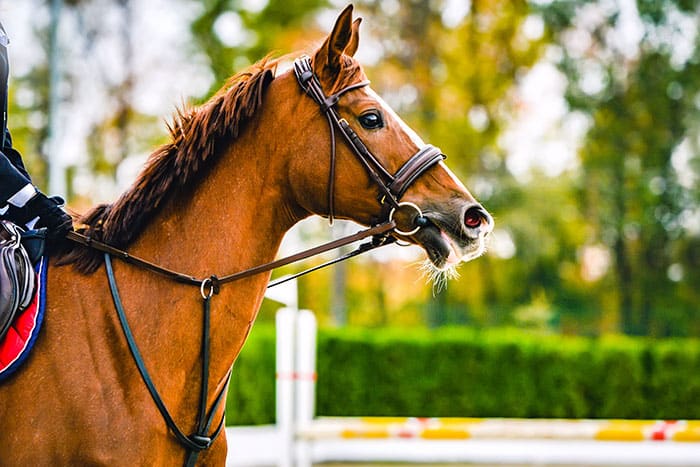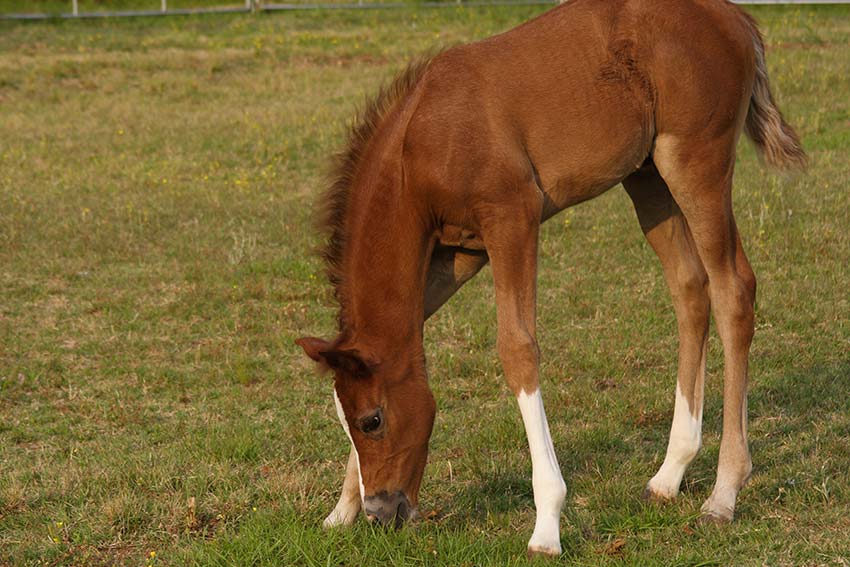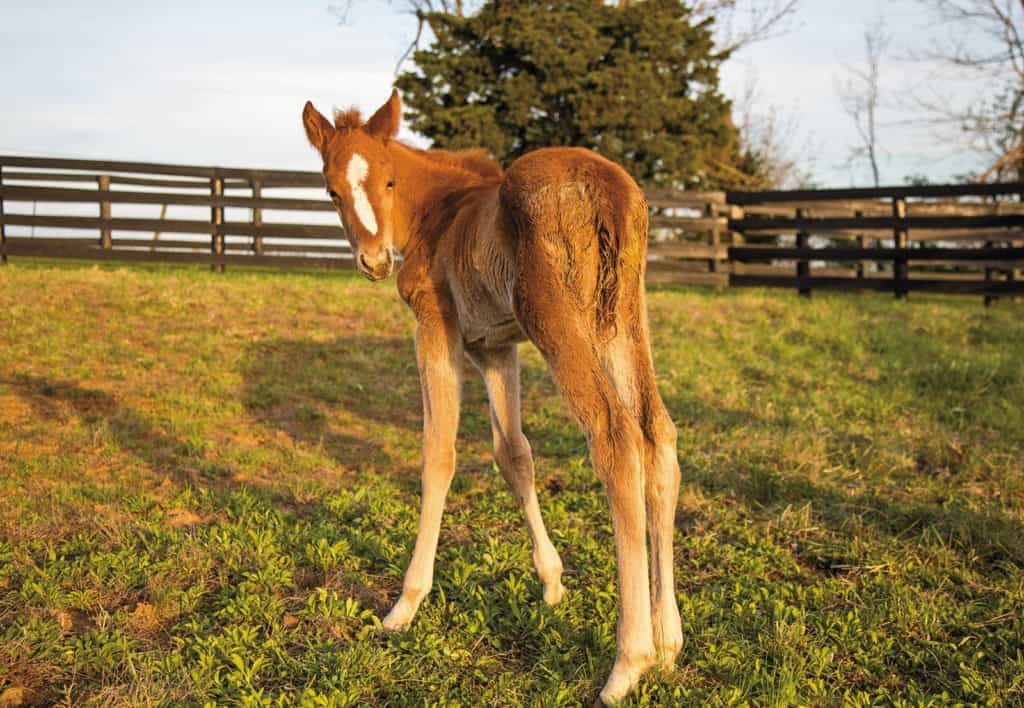
Surrogate Mare Gives Mustang Foal a Second Chance at Life
Rescue volunteers along with the staff at Bend Equine Medical Center spring to action to save an abandoned Mustang foal in Oregon.

Rescue volunteers along with the staff at Bend Equine Medical Center spring to action to save an abandoned Mustang foal in Oregon.

Signs and tests that can help you and your veterinarian quickly identify the various causes of foal diarrhea.

Disease control focuses on prevention through increased biosecurity protocols.

How diets high in starch can impact hindgut function and performance, potentially leading to problems with the ‘gut-brain axis.’

Learn about the delicate balance between two key minerals in horses’ diets.

Poor hypothalamic-pituitary-adrenal axis development in premature and immature newborn foals might affect their stress responses.

The readily available modality can reveal more information so veterinarians can make a definitive diagnosis.

Neonatal maladjustment syndrome is a diagnosis of exclusion that must be reached quickly to save the foal. Learn about commonsense approaches to nursing “dummy foals” back to health.

The three major macronutrients—carbohydrates, fats, and protein—make up the bulk of the equine diet and are the main nutrient sources necessary for all aspects of life.

Learn how proper nutrition can help improve horses’ musculoskeletal, immune, endocrine, and gastrointestinal health.

Some developmental disorders can be dangerous and performance-limiting if not treated promptly and properly.

Researchers: Understanding the impact of early exercise on growing horses could help prevent bone fractures in the future.

In this episode Dr. Emma Adam of the University of Kentucky describes the research that identified a novel strain of rotavirus in foal diarrhea cases this year.

Two important bacteria cause lung infections in foals; here’s how the body and your vet battle these pathogens.

Rhodococcus equi can cause significant economic losses, but researchers are still working to understand how and why it develops and how to prevent it.

Providing a balanced diet that meets your horse’s nutritional needs and being aware of possible shortcomings are vital for his care. Read about seven aspects of your horse’s diet that might not be up to par.
Stay on top of the most recent Horse Health news with
"*" indicates required fields